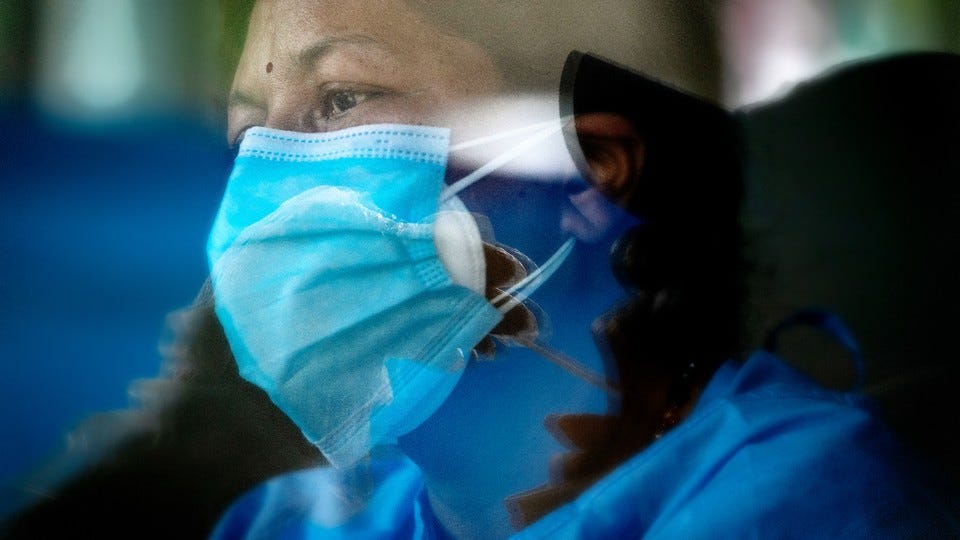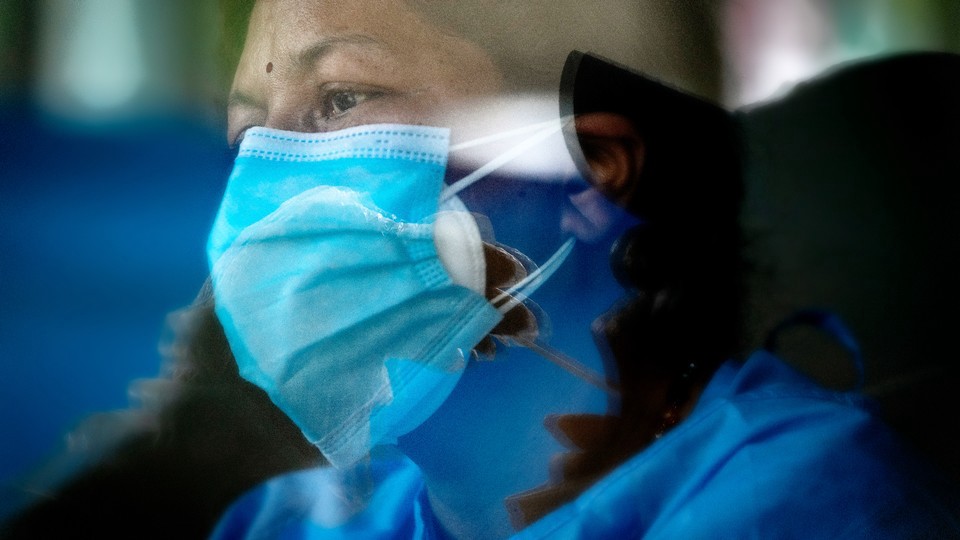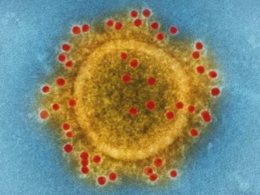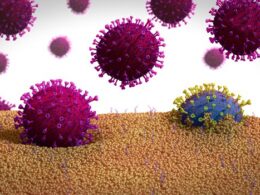We need to explore more options for fighting the disease, but our leaders lack moral imagination.
This is a republication of the article “The Problem With Our Boost-Boost-Boost COVID Strategy” with the title above.
The Atlantic
By Céline Gounder
OCTOBER 27, 2022
Chief Researcher and Editor:
Joaquim Cardoso MSc.
health transformation . portal
October 31, 200
Key messages:
What is the problem? What are the consequences?
- Instead of taking a comprehensive, society-wide approach to COVID, the U.S. government will soon declare an end to the public-health emergency.
- Many Americans will be left without access to those biomedical tools, which is precisely why an expanded menu of options is urgently needed to reduce disease and death not only during the emergency phase of the pandemic, but also for the long term.
- For the wealthiest, most advanced country in the world to accept 150,000 deaths from COVID a year is morally repugnant.
- Yet the U.S. is abandoning elderly people, people who are immunocompromised or who have disabilities, communities of color, and other high-risk groups.
What are the causes?
- Our leaders need the moral imagination to help society envision other alternatives.
- Moral leadership means taking a strong, unmistakable moral stand even when you might not win.
- Americans have many more options to mitigate the impact of COVID and save lives:
- The reason America’s COVID-control policy boils down to whether individuals choose to wear a mask or get vaccinated is our lack of moral imagination.
- Our experience with the initial COVID-vaccine rollout shows that simply expecting individuals to find out about and avail themselves of protective measures creates disparities.
What is the current assumption? What is not correct about it?
- The availability of vaccines, tests, and treatments for COVID has prompted many officials and commentators to declare that “we have the tools” to control the disease.
- But if our experience with other diseases is any guide, the American infatuation with biomedical interventions is a flawed one, because it does not take into account systemic issues.
- Diabetes, for example, can’t be controlled by medications and insulin alone. Good metabolic health also requires easy access to inexpensive, healthy foods; safe, walkable green space; and freedom from the chronic stress of poverty.
- Similarly, cholera control depends on safe water supplies and effective sanitation. We don’t tell people to boil and filter their own water. Cholera vaccines and treatments help suppress the risk further.
What else could be done?
- As more Omicron subvariants proliferate and another COVID surge looms, we show a lack of moral imagination by asking, “What else are we supposed to do?”
- The boost-boost-boost strategy is a distraction from the fundamental question Americans must answer: Are we willing to spend more money to save lives?
The boost-boost-boost strategy is a distraction from the fundamental question Americans must answer: Are we willing to spend more money to save lives?
ORIGINAL PUBLICATION (full version)

The United States has defaulted to treating life with the coronavirus as the new normal, but this normal, sadly, is anything but new.
Americans have always lived with deadly inequities in our society, and we can’t seem to imagine doing better.
For the past six months, the U.S. has averaged 300 to 500 COVID deaths a day. Living with COVID has become a euphemism for accepting perhaps 150,000 additional deaths a year.
Is this how many deaths Americans are willing to tolerate? The question hasn’t been explicitly debated, because the truth is too ugly to acknowledge.
For the past six months, the U.S. has averaged 300 to 500 COVID deaths a day. Living with COVID has become a euphemism for accepting perhaps 150,000 additional deaths a year.
Our leaders need the moral imagination to help society envision other alternatives.
The American people have been presented with a false dichotomy: the diligent promotion of masks and vaccines, or a kind of resignation-saying “ you do you,” vowing to “ meet people where they are,” even claiming that the pandemic is over.
Moral leadership means taking a strong, unmistakable moral stand even when you might not win.
It includes empathizing with everyone’s pandemic exhaustion and understanding that people have other very real economic and social concerns, while also doing something to address the social drivers of sickness and health.
Merely taking the temperature of the room or letting polling firms set policy is not moral leadership.
Moral leadership means taking a strong, unmistakable moral stand even when you might not win.
Americans have many more options to mitigate the impact of COVID and save lives:
improving indoor air quality, which is highly effective in reducing the risk of transmission; making COVID testing and treatment free and easily accessible for all; providing paid sick and family medical leave so that people can stay home when they or their family members are sick; supporting caregivers; and recognizing a right to health and health care.
None of these interventions infringes on individual rights. They all just cost money. The United States has had almost three years to implement such measures; it even experimented with some of them early in the pandemic, only to let them expire.

The reason America’s COVID-control policy boils down to whether individuals choose to wear a mask or get vaccinated is our lack of moral imagination.
Americans can’t conceive of any other way to reduce the risk of COVID and save lives.
The problem with this approach is that the currently available vaccines will not get us to herd immunity-although they reduce the risk of infection, they do not prevent it entirely-and that the politicization of vaccines and masks means a large fraction of the population may reject them for partisan reasons.
Offering updated bivalent COVID boosters won’t help when half of the population knows little or nothing about them.
The reason America’s COVID-control policy boils down to whether individuals choose to wear a mask or get vaccinated is our lack of moral imagination.
Our experience with the initial COVID-vaccine rollout shows that simply expecting individuals to find out about and avail themselves of protective measures creates disparities.
It took intentional outreach by public-health agencies to narrow the vaccination gap between communities of color and white Americans. These efforts have not been sustained.
To be clear, the COVID vaccines are safe and highly effective in reducing the risk of severe disease, hospitalization, and death.
According to one study, they saved about 20 million lives around the world in the first year of vaccination alone.
Yet vaccination uptake has dropped with each round of boosters.
The updated bivalent boosters are at best marginally better than the original vaccines and, in the face of immune-evading variants (such as the ascendant BQ.1.1 Omicron subvariant), may offer very little protection against infection and transmission.
The federal government needs a strategy beyond just telling the most COVID-conscious Americans to boost, boost, boost.

The availability of vaccines, tests, and treatments for COVID has prompted many officials and commentators to declare that “we have the tools” to control the disease.
But if our experience with other diseases is any guide, the American infatuation with biomedical interventions is a flawed one, because it does not take into account systemic issues.
Diabetes, for example, can’t be controlled by medications and insulin alone. Good metabolic health also requires easy access to inexpensive, healthy foods; safe, walkable green space; and freedom from the chronic stress of poverty.
Similarly, cholera control depends on safe water supplies and effective sanitation. We don’t tell people to boil and filter their own water. Cholera vaccines and treatments help suppress the risk further.

Instead of taking a comprehensive, society-wide approach to COVID, the U.S. government will soon declare an end to the public-health emergency.
Many Americans will be left without access to those biomedical tools, which is precisely why an expanded menu of options is urgently needed to reduce disease and death not only during the emergency phase of the pandemic, but also for the long term.
In the United States, public health is an oxymoron; individuals with access and means seek out prevention and treatment, while others are blamed for not doing so.
Blame serves to absolve government officials of responsibility to do more.
Instead of taking a comprehensive, society-wide approach to COVID, the U.S. government will soon declare an end to the public-health emergency.
For the wealthiest, most advanced country in the world to accept 150,000 deaths from COVID a year is morally repugnant.
Yet the U.S. is abandoning elderly people, people who are immunocompromised or who have disabilities, communities of color, and other high-risk groups.
As more Omicron subvariants proliferate and another COVID surge looms, we show a lack of moral imagination by asking, “What else are we supposed to do?”
The boost-boost-boost strategy is a distraction from the fundamental question Americans must answer: Are we willing to spend more money to save lives?
The boost-boost-boost strategy is a distraction from the fundamental question Americans must answer: Are we willing to spend more money to save lives?
Originally published at https://www.theatlantic.com on October 27, 2022.
About the author & affiliations:
Céline Gounder, an infectious-disease physician, is a senior fellow at the Kaiser Family Foundation and the editor at large of
Kaiser Health News. She is also the host of the podcast Epidemic.












